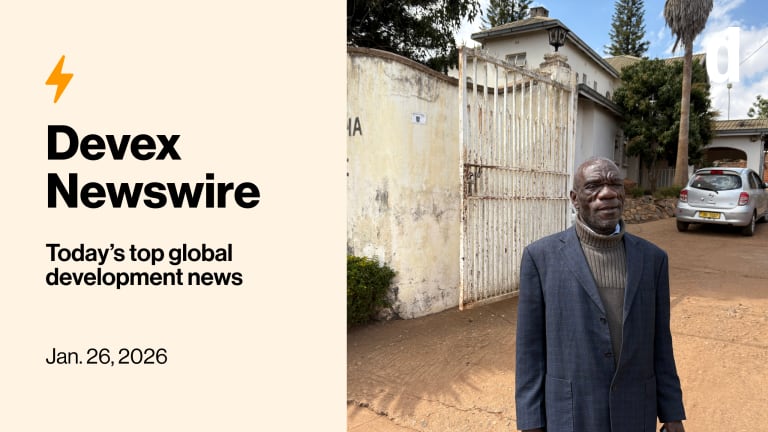Monday’s powerful earthquake brought Syria back onto the world’s front pages, with rescuers still combing the wreckage for survivors and aftershocks rattling buildings already scarred from 12 years of bombings. But will the international community be moved enough by the tragedy to reconsider its long-term approach to the country?
Also in today’s edition: A philanthropic pioneer retires — and reflects on the industry she helped shape. Plus, a philanthropic movement tries to weather another PR blow.
+ Join us on Feb. 9 at 8 a.m. ET (2 p.m. CET) for a Twitter Spaces conversation with Save the Children US CEO Janti Soeripto on what’s next for NGOs in Afghanistan after the Taliban’s employment ban on female aid workers.
Printing articles to share with others is a breach of our terms and conditions and copyright policy. Please use the sharing options on the left side of the article. Devex Pro members may share up to 10 articles per month using the Pro share tool ( ).








